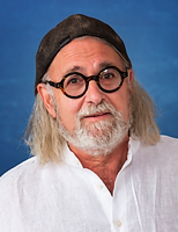The new state of Israel declared its independence on the fifth day of the Hebrew month of Iyyar. The partition of Palestine was determined by a narrow vote of the United Nations on the 29th of November, 1947. Independence was declared seven months later, at a time eight hours before the end of the British Palestine mandate on May 15, 1948. Hence the date was determined by the exigencies of international politics.
So placing a holiday in the middle of the Omer was unusual. Of course, there were religious Zionists who imputed religious meaning to the establishment of the State and the secular founders were otherwise not thinking about the rhythms of the Jewish year when they signed the papers.
What they might have considered was the placement of Yom ha-Zikaron, Memorial Day for Israel’s fallen, which comes just before Independence day, or Yom ha-Atzmaut. I would say that it has created a disquieting disconnect for the very ones most affected, those who have someone to mourn. One visits a military cemetery or attends a memorial service, lights a candle and thinks about a father, son, brother, sister, somebody found and lost. Then, that evening, the country goes crazy with wild revels and the children and teenagers run around and behave with an almost irritating joy. It’s almost schizophrenic; how can you hold both emotions so close together?
I had two friends that died in the 1970s, ambivalent rivals of mine in some social situations, very nice guys. They are always “very nice guys,’ in the end, clouded by the mists of memory, but these boys really were. One was last seen running to a bus in sneakers and tallit on Yom Kippur in Herzeliah Pituach; they say his transport plane was shot down over Sinai. The other died in the Arava, on the egg run to Eilat. I remember them on Yom ha-Zikaron and I don’t alter my behavior much on the Omer. Thus I deal with the disjunction between Yom ha-Zikaron and Yom ha-Atzmaut. The point of it all was that we don’t cower, that we don’t have to be afraid, that those two guys, about whom I could tell you so many stories, died in the midst of a great project to remove the fear from our hearts, that we might not be, as the Zionist leader Max Nordau put it, “a shuttlecock among the nations.” So we shed a tear and watch the children play, hoping for a time when their innocence may be prolonged past young adulthood.

